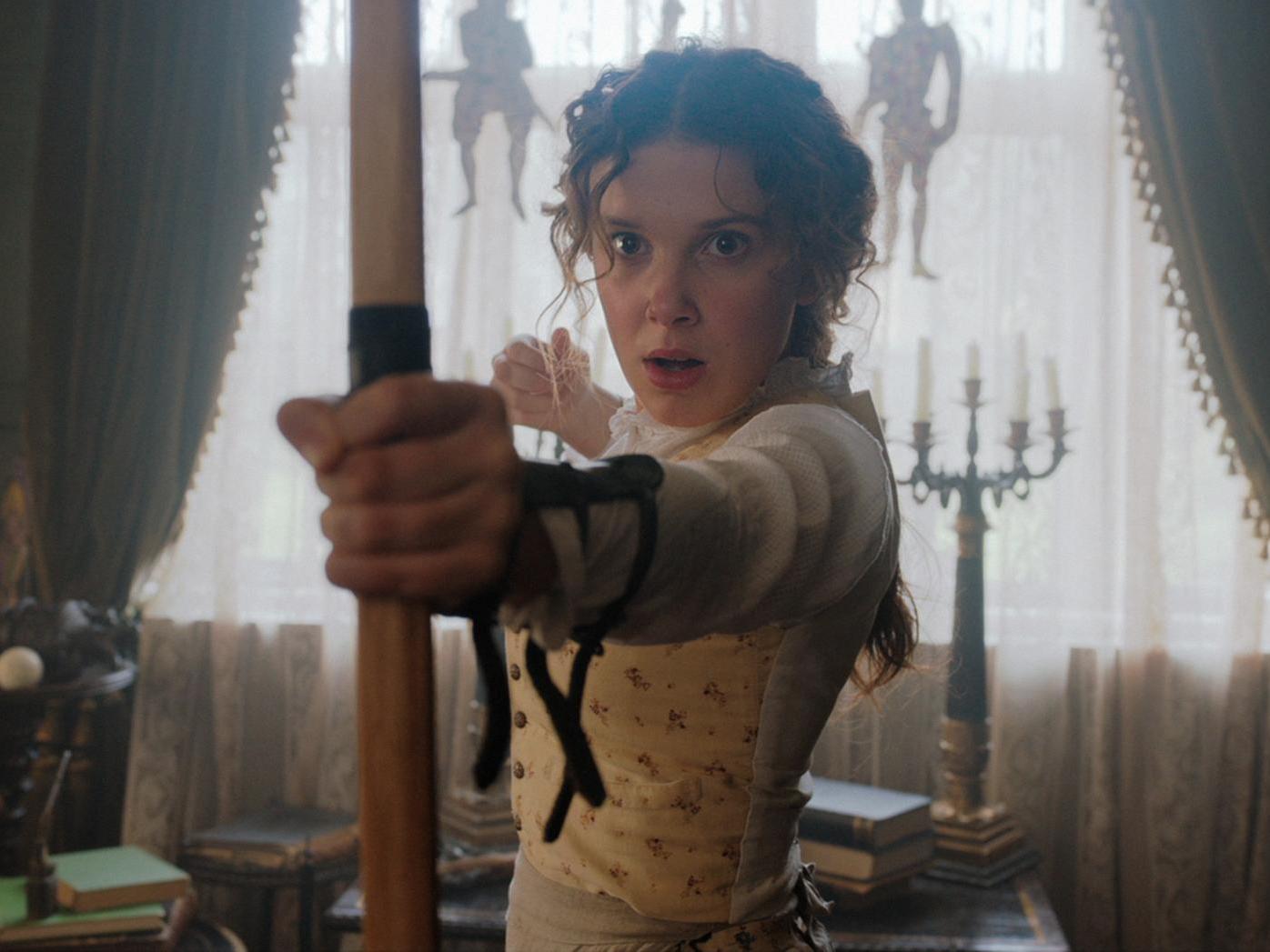Enola Holmes trailer sparks renewed interest in Conan Doyle lawsuit
Case involves an emotional Sherlock Holmes in the last 10 stories by Sir Arthur Conan Doyle

Your support helps us to tell the story
From reproductive rights to climate change to Big Tech, The Independent is on the ground when the story is developing. Whether it's investigating the financials of Elon Musk's pro-Trump PAC or producing our latest documentary, 'The A Word', which shines a light on the American women fighting for reproductive rights, we know how important it is to parse out the facts from the messaging.
At such a critical moment in US history, we need reporters on the ground. Your donation allows us to keep sending journalists to speak to both sides of the story.
The Independent is trusted by Americans across the entire political spectrum. And unlike many other quality news outlets, we choose not to lock Americans out of our reporting and analysis with paywalls. We believe quality journalism should be available to everyone, paid for by those who can afford it.
Your support makes all the difference.With the release of the trailer for Netflix’s new film Enola Holmes, interest in a complaint by the estate of Sir Arthur Conan Doyle has resurfaced.
Originally reported by The Hollywood Reporter, the lawsuit filed in June targets Netflix, Legendary Pictures, Penguin Random House, and author Nancy Springer, whose book series provided the material for the show, starring Stranger Things’ Millie Bobby Brown.
In 2014, the Conan Doyle estate lost the copyright to any Sherlock Holmes stories written before 1923 (most of them).
Judge Richard Posner rejected the argument that Sherlock Holmes is a “complex” character, that his attributes were created over time, and that denying copyright on the whole Sherlock Holmes character would amount to giving him “multiple personalities”.
However, the Doyle estate maintains its hold on the author’s final 10 original stories, written between 1923 and 1927. It now alleges that the difference between those and the earlier stories is emotions, which was a result of Doyle wrestling with the grief of losing loved ones during World War One.

“After the stories that are now in the public domain, and before the Copyrighted Stories, the Great War happened,” states the complaint.
“In World War I Conan Doyle lost his eldest son, Arthur Alleyne Kingsley. Four months later he lost his brother, Brigadier-general Innes Doyle. When Conan Doyle came back to Holmes in the Copyrighted Stories between 1923 and 1927, it was no longer enough that the Holmes character was the most brilliant rational and analytical mind. Holmes needed to be human. The character needed to develop human connection and empathy.”
The Conan Doyle estate previously sued over the character of Sherlock Holmes in 2015, when a complaint was lodged against Miramax over the film Mr Holmes (later settled).
Enola Holmes is still set for release next month on Netflix.